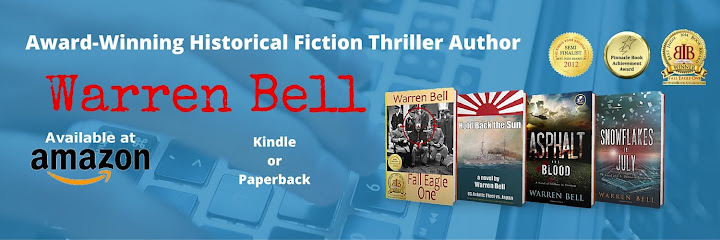Last
week, my wife and I watched the movie, Philomena,
for the first time. Based on a true story, the film tells about an Irish
woman’s years-long search for the illegitimate
son who was taken from her as a baby and sold for adoption by a Catholic
nunnery. Near the end of the movie, Philomena and the journalist who had been
helping her confront the old nun primarily responsible for keeping the mother
and son apart. Astonishingly, Philomena turns to the nun and says, “I want you to
know, Sister, that I forgive you.” The journalist, who is focused on
retribution, is stunned. How can such forgiveness be possible?
While
doing research on my second novel, Hold Back the Sun, and the sequel I have just begun, I studied several books that
detailed the suffering of Allied prisoners of war (POWs) and interned civilians
during the Pacific war. These prisoners were beaten, worked like slaves, and
systematically starved during their entire captivity. Some women were forced to
become sex slaves for the Japanese Army. The POW Research Network Japan
reported that some 27 percent of military prisoners died in captivity. Crew
members of ships taking former Dutch internees from Indonesia to Holland
reported that after meals, the women viewed food as so precious that they would
sweep the crumbs off the dining tables and save them for eating later.
This
week, Anna Fifield had an article in the Washington
Post about a visit to Japan by several 90-something-year-old former POWs.
After detailing the horrors the men experienced, Fifield states that, “What was
striking about the three former POWs was not just how little resentment they
harbored but how happy they seemed for Japan.” She quotes one as saying, “I get
a kick out of seeing how well this nation is doing.”
One
of my research sources is the book, Evidence
Not Seen by Darlene Deibler Rose. The wartime memoir of an American
missionary interned for years in a camp on Makassar, Rose relates the horrors
endured by the women, but goes on to tell of how she was concerned with
changing the hearts of her captors. Forgiveness was at the core of her
beliefs. In my research, I encountered
other references to former prisoners forgiving their previous tormentors.
How
can people find it within themselves to forgive the unforgivable? I believe
that both Philomena and Darlene Deibler Rose found their forgiveness in their
religion. Both were dedicated Christians. For the old soldiers, the reasons are
less clear. Forgiving one’s enemies,
however, isn’t just a Christian concept. Confucius is quoted as advising, “He
who refuses to forgive burns the bridges over which he, too, must cross.” The
Buddha wrote that “Holding on to anger is like grasping a hot coal with the intent
of throwing it at someone else; you are the one who gets burned.”
Many
in today’s world might consider the forgiving people above to be insane. For
decades, the mantra of many has been, “Don’t get mad, get even.” Payback has
become a prized concept. Hate, revenge and retribution seem to be the order of
the day. I find that I can no longer subscribe to such notions. Novelist Jack
Higgins frequently quoted the old proverb, “Before departing on a journey of
revenge, first dig two graves.” The second grave, of course, was for the avenger.
There is wisdom in those words. Hate corrodes the human spirit. I do not have
enough time left in my life to waste any on hatred. To paraphrase Gandhi, “If
everyone practiced ‘an eye for an eye and a tooth for a tooth,’ the world would
be filled with toothless blind people.”


